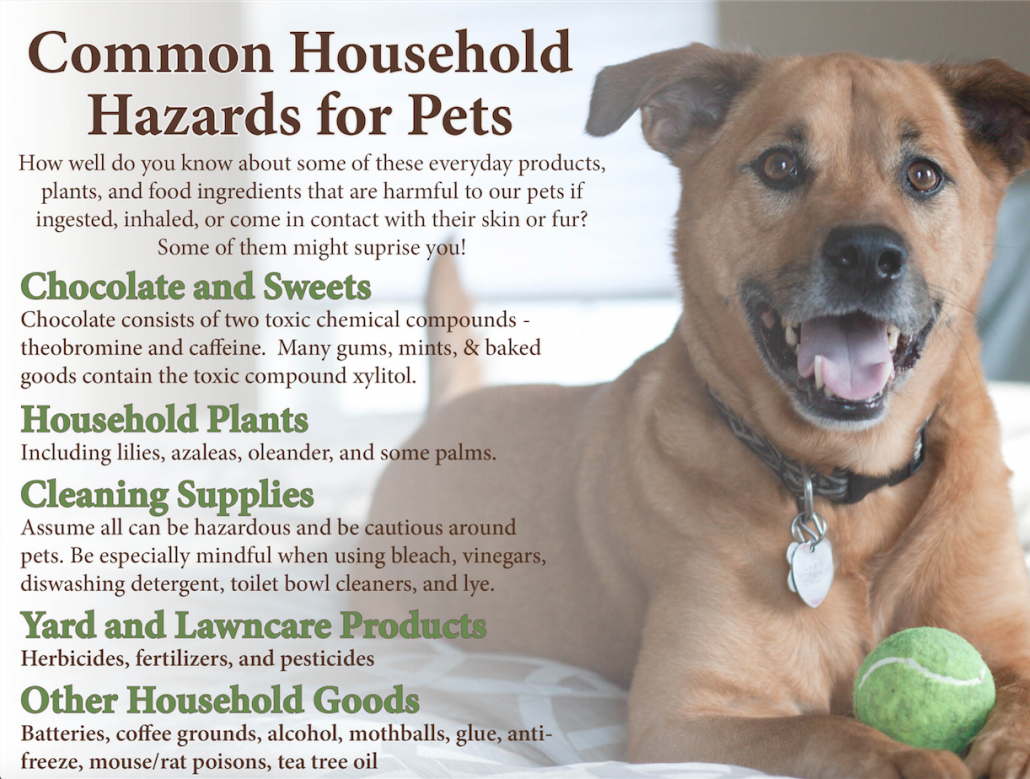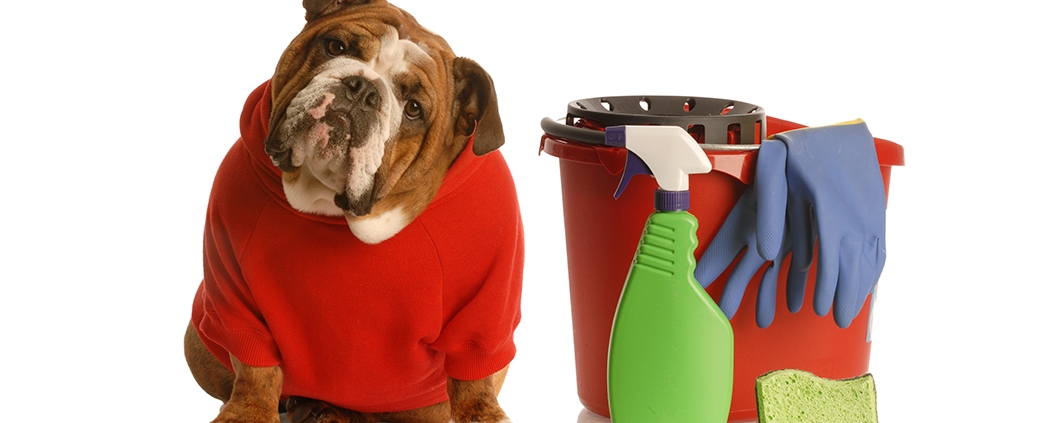Health Hazards for Pets – Are You Taking the Necessary Precautions?
Spring cleaning has already kicked in and now that summer is upon us, new projects can mean new health hazards. Not just for humans, but for your pets, too. It’s important to keep your pets safe, just as you would your 2 legged family members. Here are some helpful cleaning tips to get you started on those summer projects of yours:
Kitchen and Bathroom Cleaning– Always look for “non-toxic” and “pet friendly” cleaners. Thankfully, most products mark this very clearly on the label.
– Watch out for chemicals like ammonia, chlorine, formaldehyde, carbolic acid, hydroxybenzene, oxybenzene, and perchloroethylene. Most heavy cleaning products have one or more of these chemicals, so aim to avoid them whenever possible. This is especially important to people with birds, who are dangerously sensitive to aerosols.
– Pine oil is found in a number of cleaning products, especially those used to mop kitchen floors, but it is also terrible for cats. They are extremely sensitive to it, so make sure they are far away before breaking out the mop.
– Toilet bowl cleaners are a potent mixture of very dangerous chemicals, so keep the lid down while letting it sit, and if you use a clip on cleaner year round, NEVER let pets anywhere near it.
Bedrooms and Living Room Cleaning
– Beware carpet cleaners! – Make sure any house plants are pet friendly! Lilies are extremely poisonous to cats, while the Sago plant is deadly for dogs. Double check to make sure you aren’t harboring a dangerous plant inside.
Lawn and Garden
– Fertilizers are often bad news! Most fertilizers contain dangerous levels of chemicals, natural or not, that can linger for longer than you think. Make sure you check the ingredients and observe the proper waiting period before letting your loved ones frolic around in the lawn.
– Herbicides and pesticides are another major risk. If they haven’t been rinsed and dried properly, your pets can walk on them, and ingest them from licking their paws. Make sure you find the most animal friendly, and make sure it’s safe before letting them run around.
– Metaldehyde is a chemical found in slug and snail bait, and it is highly toxic for dogs and cats. Make sure to avoid using it, or keep your pets well clear of the bait if you do use it. This is one of the most dangerous items you may be using in your garden.
– Mouse and rat poison are also extremely dangerous for animals, so finding a humane way to fix your rodent problem is going to be the best way to protect your pets.

This is just a sample of tips found. But there are more out there, so pay attention for your and your pets’ safety. And remember to read labels so you can avoid any potential health hazards before they happen.
Need to know more about hazardous substances, chemicals and wastes? Check out our training catalog for all available courses that can help keep everyone safe.

